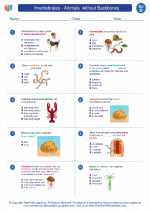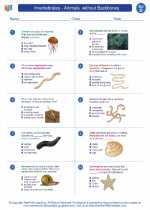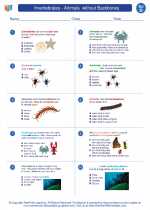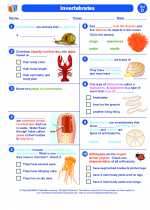Mechanical Systems
A mechanical system is a collection of interconnected components that work together to perform a specific task. These systems use mechanical energy to accomplish various functions, such as moving, lifting, or transforming materials.
Key Components of Mechanical Systems
- Input: The force or energy applied to the system
- Mechanical elements: Such as gears, levers, pulleys, and wheels
- Output: The result of the system's operation, such as movement or the application of force
Examples of Mechanical Systems
There are numerous examples of mechanical systems in everyday life, including:
- A bicycle, with its gears, chains, and wheels
- A crane, which uses pulleys and levers to lift heavy objects
- An escalator, which employs a combination of gears, belts, and motors to move people between floors
Study Tips for Understanding Mechanical Systems
To better understand mechanical systems, consider the following study tips:
- Learn about simple machines, such as levers, pulleys, and inclined planes, and how they are used in mechanical systems
- Explore real-world examples of mechanical systems and analyze how they function
- Understand the concept of mechanical advantage and how it applies to different types of systems
Conclusion
Understanding mechanical systems is crucial for grasping the fundamental principles of engineering and physics. By studying the components, functions, and applications of these systems, you can gain valuable insights into the world of mechanics and technology.
.◂Science Worksheets and Study Guides Fourth Grade. Invertebrates - Animals without Backbones
Study Guide Invertebrates - Animals without Backbones
Invertebrates - Animals without Backbones  Activity Lesson
Activity Lesson Invertebrates - Animals without Backbones
Invertebrates - Animals without Backbones  Worksheet/Answer key
Worksheet/Answer key Invertebrates - Animals without Backbones
Invertebrates - Animals without Backbones  Worksheet/Answer key
Worksheet/Answer key Invertebrates - Animals without Backbones
Invertebrates - Animals without Backbones  Worksheet/Answer key
Worksheet/Answer key Invertebrates - Animals without Backbones
Invertebrates - Animals without Backbones  Worksheet/Answer key
Worksheet/Answer key Invertebrates
Invertebrates  Vocabulary/Answer key
Vocabulary/Answer key Invertebrates - Animals without Backbones
Invertebrates - Animals without Backbones  Vocabulary/Answer key
Vocabulary/Answer key Invertebrates - Animals without Backbones
Invertebrates - Animals without Backbones  Vocabulary/Answer key
Vocabulary/Answer key Invertebrates - Animals without Backbones
Invertebrates - Animals without Backbones  Vocabulary/Answer key
Vocabulary/Answer key Invertebrates - Animals without Backbones
Invertebrates - Animals without Backbones  Vocabulary/Answer key
Vocabulary/Answer key Invertebrates - Animals without Backbones
Invertebrates - Animals without Backbones 

 Activity Lesson
Activity Lesson
 Worksheet/Answer key
Worksheet/Answer key
 Worksheet/Answer key
Worksheet/Answer key
 Worksheet/Answer key
Worksheet/Answer key
 Worksheet/Answer key
Worksheet/Answer key
 Vocabulary/Answer key
Vocabulary/Answer key
 Vocabulary/Answer key
Vocabulary/Answer key
 Vocabulary/Answer key
Vocabulary/Answer key
 Vocabulary/Answer key
Vocabulary/Answer key
 Vocabulary/Answer key
Vocabulary/Answer key

The resources above cover the following skills:
Life Science: The students will use scientific skills and processes to explain the dynamic nature of living things, their interactions, and the results from the interactions that occur over time.
Diversity of Life: Explain how animals and plants can be grouped according to observable features.
Classify a variety of animals and plants according to their observable features and provide reasons for placing them into different groups.